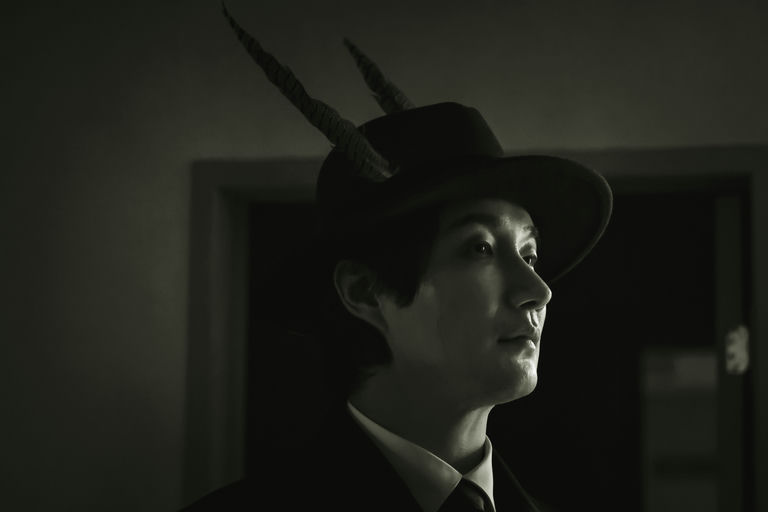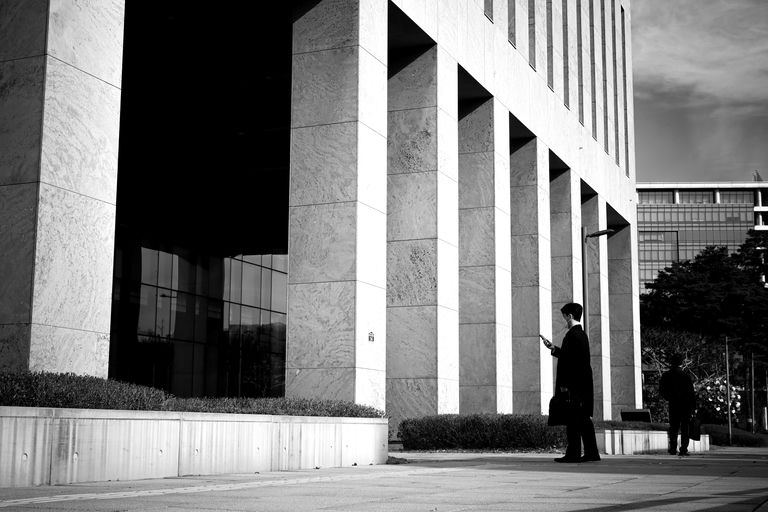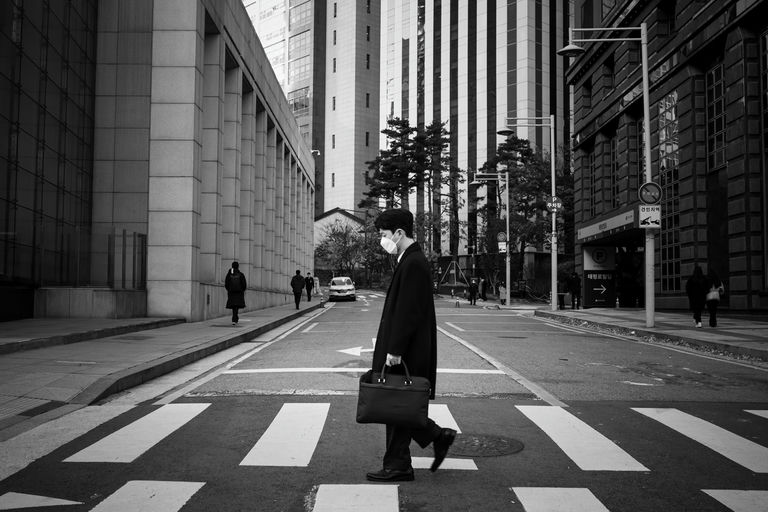by Brian Hioe
語言:
English
Photo Courtesy of Olo Media
This is a No Man is an Island film review written in collaboration with Cinema Escapist as part of coverage of the 2024 Bucheon International Fantastic Film Festival. Keep an eye out for more!
THE TENANTS is an evocative film about urban poverty in Korea. While comparisons to Parasite are inevitable, given the similar subject matter of tenants living in crowded, tiny, and run-down apartments, The Tenants stands out with its soft dystopian setting, seeing as it is set in the near future at a time in which holograms are common but there is little else that is far-flung science fiction. Likewise, the movie is shot in black-and-white, creating an aesthetic reminiscent of Soviet science fiction a la Tarkovsky.
The Tenants follows Kim Shin-dong, a young single man working in a company. Facing increasing rents, he takes on two tenants who live in his tiny bathroom. The tenants are an older man and his wife; the two are depicted as otherworldly, inhuman figures.

Photo courtesy of Olo Media
While Kim Shin-dong endures living with the two of them, their alien behavior disturbs him. In the meantime, he continues to chase after a promotion at his job, in the hopes of moving to a better city. Kim Shin-dong otherwise has few companions apart from one friend that he periodically calls up, and is alienated in the dystopian capitalist hellscape that is The Tenant’s setting.
Compared to Parasite, The Tenants presents a less binary worldview. Rather than showing a world divided simply between haves and have-nots, it depicts nuanced layers of poverty. Kim Shin-dong is clearly not well-off, but he is still doing better than his tenants. As it transpires, the world of The Tenants proves one in which for even the seemingly most impoverished, there are still further depths of poverty to plumb.
As the film’s title implies, much of the movie revolves around Kim Shin-dong’s relationship with his two tenants. This proves excellently realized. Though the tenants’ off-putting behavior initially depicts them as figures of shock and horror, the movie gradually shows them in an increasingly sympathetic manner–after all, it is the subjective experiences of Kim Shin-dong that color his perceptions of them.
Furthermore, The Tenants’ distinctive aesthetic is one its great strengths. The film’s stripped-down setting allows it to do quite a lot with minimal elements, without needing to be flashy.

Photo courtesy of Olo Media
The Tenants is also lean and compact movie from a narrative perspective, with scarcely any unnecessary plot elements. This further strengthens the movie, which manages to convert its socioeconomic message without being didactic. Again, if one is to compare The Tenants to Parasite,Parasite would feel overly long and circles around numerous times to drive home its point. Even if The Tenants is not exactly subtle either, it proves a far less baggy movie.
The ending of The Tenants is perhaps not the most successful. Certainly, the movie may aim to be Kafkaesque, but perhaps its ending is still too reliant on genre tropes. But, as seems to be the case with many South Korean films about socioeconomic equality, the worldview of The Tenants proves to be bleak, and yet it is an excellently realized movie that conveys contemporary socioeconomic despair.



